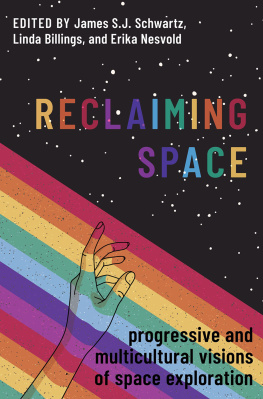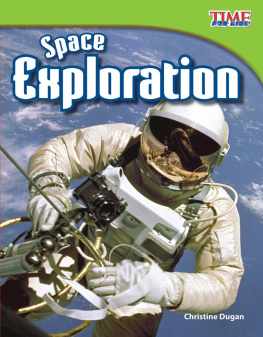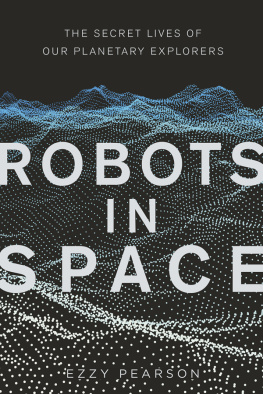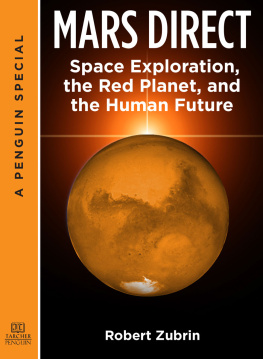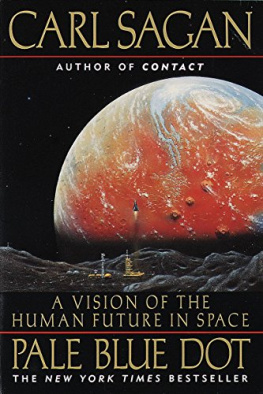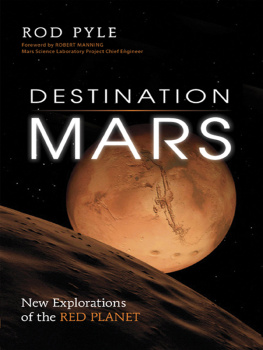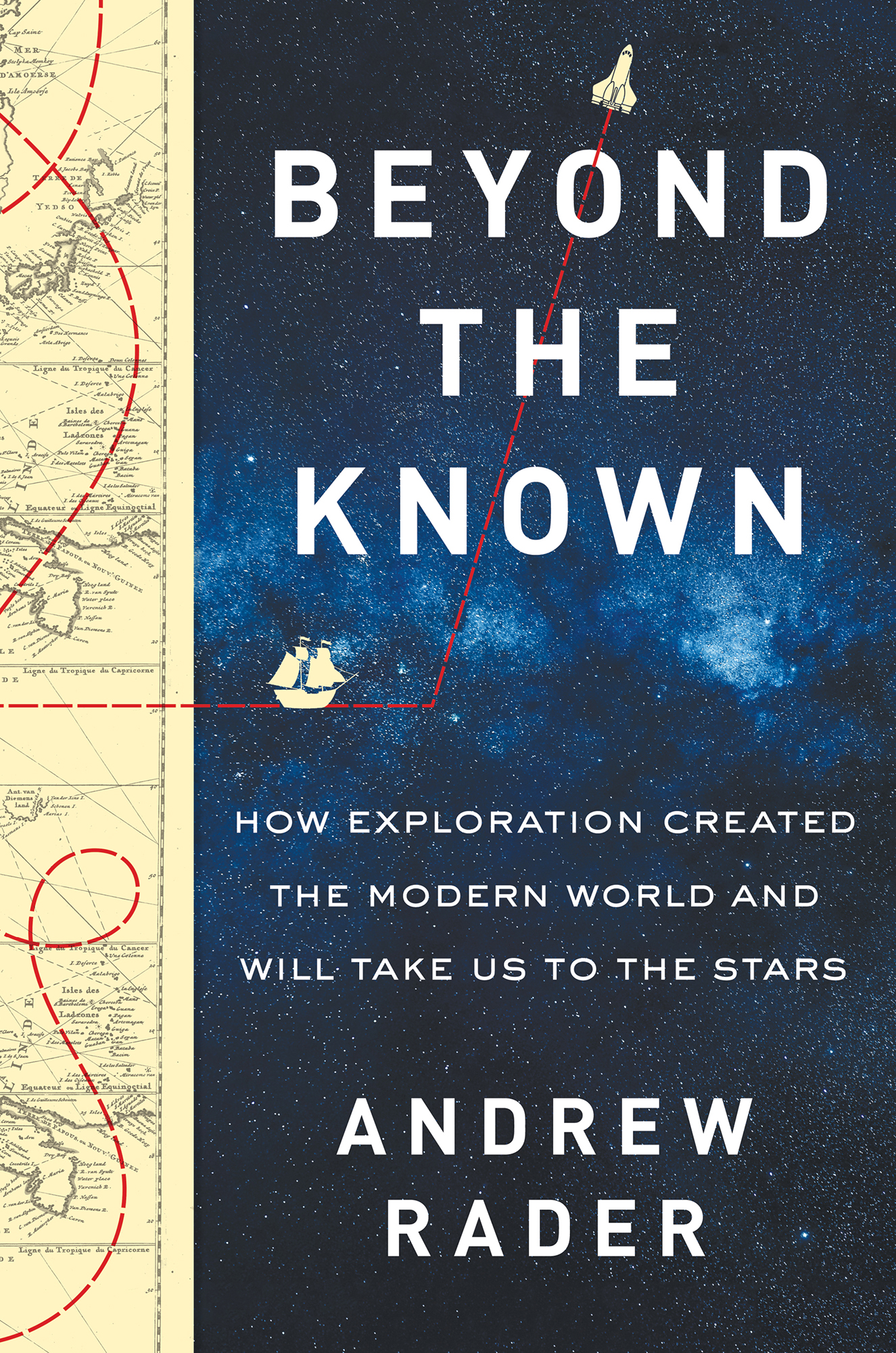CONTENTS
Guide

Scribner
An Imprint of Simon & Schuster, Inc.
1230 Avenue of the Americas
New York, NY 10020
www.SimonandSchuster.com
Copyright 2019 by Andrew Rader
All rights reserved, including the right to reproduce this book or portions thereof in any form whatsoever. For information, address Scribner Subsidiary Rights Department, 1230 Avenue of the Americas, New York, NY 10020.
First Scribner hardcover edition November 2019
SCRIBNER and design are registered trademarks of The Gale Group, Inc., used under license by Simon & Schuster, Inc., the publisher of this work.
For information about special discounts for bulk purchases, please contact Simon & Schuster Special Sales at 1-866-506-1949 or .
The Simon & Schuster Speakers Bureau can bring authors to your live event. For more information or to book an event, contact the Simon & Schuster Speakers Bureau at 1-866-248-3049 or visit our website at www.simonspeakers.com.
Jacket design by Ryan Raphael
Jacket artwork: Ship by Samuii/iStock/Getty Images Plus; Rocket by Djahan/iStock/Getty Images Plus; Map by Historic Map Works LLC and Osher Map Library/Getty Images
Library of Congress Cataloging-in-Publication Data
Names: Rader, Andrew (Andrew Alan), author.
Title: Beyond the known : how exploration created the modern world and will take us to the stars / Andrew Rader.
Description: New York : Scribner, [2019]
Identifiers: LCCN 2019002126 (print) | LCCN 2019012995 (ebook) | ISBN
9781982123574 (eBook) | ISBN 9781982123536 (hardcover) | ISBN
9781982123550 (pbk.) | ISBN 9781982123574 (ebk.)
Subjects: LCSH: Discoveries in geographyHistory. | Discoveries in geographySocial aspects. | Outer spaceExploration.
Classification: LCC G80 (ebook) | LCC G80 .R28 2019 (print) | DDC 910.9dc23
LC record available at https://lccn.loc.gov/2019002126
ISBN 978-1-9821-2353-6
ISBN 978-1-9821-2357-4 (ebook)
Only those who will risk going too far can possibly find out how far one can go.
T. S. Eliot
INTRODUCTION
On December 21, 2015, SpaceX landed a reusable rocket after successfully launching a satellite into orbitthe first time this feat had ever been accomplished. That Falcon 9 rocket now stands proudly outside company headquarters in Hawthorne, California. I pass it on my way into work.
Why does this event matter? Let me ask the question differently. What happened in 1492? In January 1492, the last Moorish kingdom of Spain surrendered, ending a 781-year Muslim occupation that had once threatened all of Europe. In March of that same year, Scotland and France renewed a two-century-old anti-English alliance. Later that month, Spain declared that it would expel all its Jews, displacing more than 100,000. In May, a riot in the Netherlands killed 232 people. In August, a rapacious candidate bribed his way to the papacy, and was beset by scandal when it was revealed that hed fathered several children with multiple mistresses. In October, Henry VII of England concluded peace with the French after leading a cross-channel invasion of the continent. In November, a meteorite struck a wheat field in France, creating a fireball visible for a hundred miles.
These events shook the lives of millions, but what do we remember about 1492? Columbus sailed the ocean blue. Taking the long view of history, we see that five hundred years hence, petty political squabbles, celebrity gossip, and fluctuations of the stock market wont matter. But exploration will. Columbus was important not because of his individual achievements but because he launched a new age of discovery that connected people around the world. He pushed outward the borders of the known.
So, too, did the engineers of SpaceX in December 2015at least, in a first-step incremental way. The rocket landing was important because we live on a large rocky planet with intense gravity. Its really hard to get to space. Rockets have to fly at the technical edge of feasibility, carrying more than 90 percent of their total weight as fuel. To maximize performance, its been standard practice to make rockets disposable. But using disposable rockets is like throwing away the airplane after each flight. Reusable rockets make space affordable, and this is one of the innovations that will open up the cosmos to human activity.
Ultimately, all exploration is an investment in our future. Most of the benefits of expanding into space will be realized by our future descendants, as has always been the case throughout history when people choose to look beyond their horizons. Asking why we should travel beyond Earth is like asking our early ancestors why they should leave the confines of the African Rift Valley. Most needs are being met, so why leave? But maybe there are new sources of food over the hills, or solutions to problems that can only be found by venturing into the unknown.
Crucially, by placing ourselves at the leading edge of whats possible, we create incentives to solve problems that havent been solved before, often with unforeseen applications. Columbus sailed with flimsy coastal vessels unsuited to rough Atlantic waters because oceangoing sailing ships hadnt yet been inventedand never would have been without the awareness of new continents across the sea. Without an ocean to cross, we never would have invented passenger liners or transcontinental air transport. At the beginning of the Cold War, America didnt know how to send people to space, but in trying to figure it out, NASA invented life-support technologies, water filtration systems, cordless power tools, fireproof clothing, wireless data transfer, solar panels, insulin monitors, remote control systems, weather forecasting, medical scanning technologies, and more than two thousand other spin-offs.
This is a book about how exploration enriches us. Its a story of discovery and adventure, of wealth and conquest, of prejudice and tolerance.
The first section begins with the first wave of human expansion and then follows the voyages of the ancients, from the Polynesians to the Egyptians to the Greeks, and right up to the fall of Rome. As we shall see, these civilizations well understood that exploration, trade, and the exchange of ideas were critical to their prosperity.
The books second section picks up after Romes fall, starting with the Vikings, and brings us to Magellans expedition around the world. It was during this Age of Exploration that most of our planet was connected to form our modern global system.
The books third section takes us from the scientific voyages of discovery into the skies as humans masters flight, and through the space race up to modern times. With the world now more connected than ever, we might ask: Is there anything left to discover? The answer is most definitely yes. Recent data from planet-hunting missions such as the Kepler Space Telescope suggest that there are billions of Earthlike planets in our galaxy alone, among hundreds of billions of galaxies. So most of the story of exploration actually lies ahead of us, unwritten.
In the books fourth section, Ill try to shed light on what future beyond Earth explorations might look like. Among the questions Ill attempt to answer: Why is Mars the most important goal in the near term, and how will we get there, live, and prosper? Whats next


